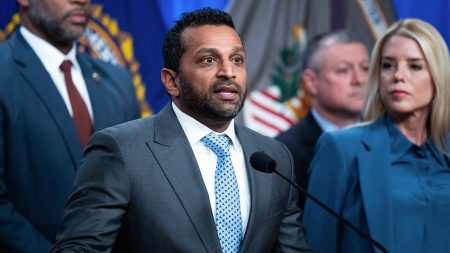The Fiscal Year 2024 National Defense Authorization Act (NDAA), a colossal piece of legislation totaling nearly 1,800 pages and outlining U.S. defense and national security priorities, has been agreed upon by Congressional leaders. This hefty bill earmarks $895.2 billion in federal spending, addressing a wide spectrum of issues ranging from military pay raises and border security to restrictions on transgender medical care and diversity initiatives.
A significant highlight of the NDAA is a substantial 14.5% pay raise for junior enlisted troops, a move lauded by House Armed Services Committee Chairman Mike Rogers, R-Ala., as prioritizing the well-being of service members. The bill also aims to enhance support for military families by improving housing, supporting spouses, increasing access to childcare, and ensuring access to medical care. However, this commitment to military families is juxtaposed with a controversial provision restricting access to gender-affirming care for transgender children of service members. Specifically, the bill prohibits medical interventions related to gender dysphoria that could result in sterilization for children under 18.
The inclusion of this provision has ignited a firestorm of criticism, with organizations like the Human Rights Campaign (HRC) condemning it as a cruel and hateful attack on military families. Critics argue that this policy forces service members to choose between their careers and the healthcare needs of their children. This clash between supporting military families and restricting access to specific medical treatments underscores the complexities and potential unintended consequences of the NDAA’s provisions.
Beyond the contentious issue of transgender healthcare, the NDAA addresses several other key areas. It allocates resources to bolster border security, including a bipartisan initiative to establish a Northern Border Mission Center under the Department of Homeland Security. The bill also authorizes the deployment of the National Guard to the southwest border to combat illegal immigration and drug trafficking. These measures reflect the ongoing emphasis on border security within the Republican party.
Further provisions within the NDAA target diversity, equity, and inclusion (DEI) initiatives and critical race theory. The bill places limitations on DEI-based recruitment practices and restricts the teaching of critical race theory in military-run schools. These measures reflect a broader conservative pushback against DEI and critical race theory in various sectors of American society.
The NDAA’s passage is expected in the House next week, though its ultimate fate remains uncertain. While the NDAA traditionally enjoys broad bipartisan support, the inclusion of controversial provisions, particularly those related to transgender healthcare and DEI, may alienate some Democratic lawmakers. The extent to which these provisions will impact the bill’s passage and the final vote count remains to be seen. The legislation’s comprehensive scope and the contentious nature of some of its provisions ensure it will remain a subject of intense debate and scrutiny in the coming days.
In essence, the FY2024 NDAA is a multifaceted piece of legislation addressing a broad spectrum of defense and national security priorities. While it includes provisions aimed at supporting military personnel and their families, such as a significant pay raise for junior troops, it also incorporates controversial measures restricting transgender healthcare and DEI initiatives. These contentious elements create uncertainty around the bill’s ultimate passage and underscore the complex political landscape surrounding defense policy. The NDAA’s impact on military families, border security, and the broader cultural landscape will continue to be debated and analyzed as it moves through the legislative process.













